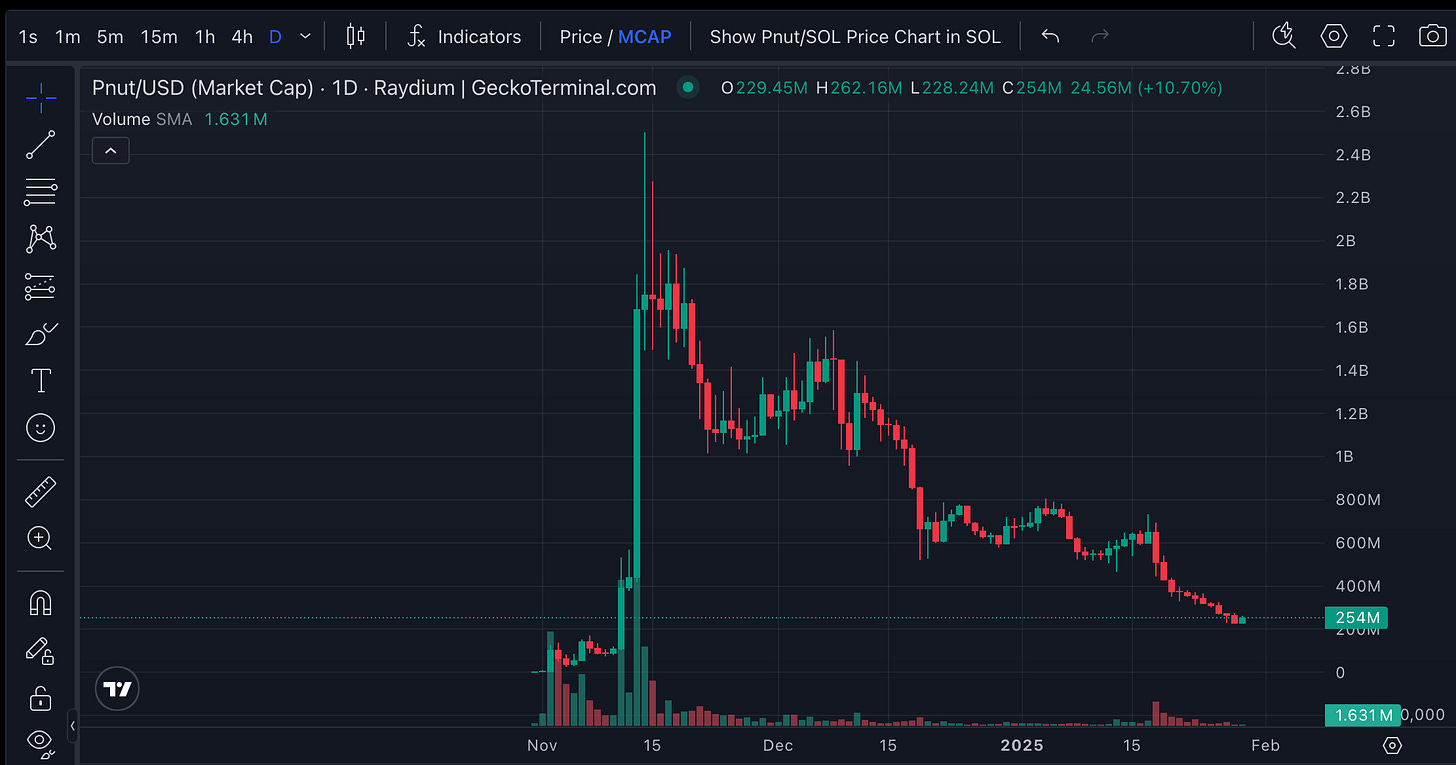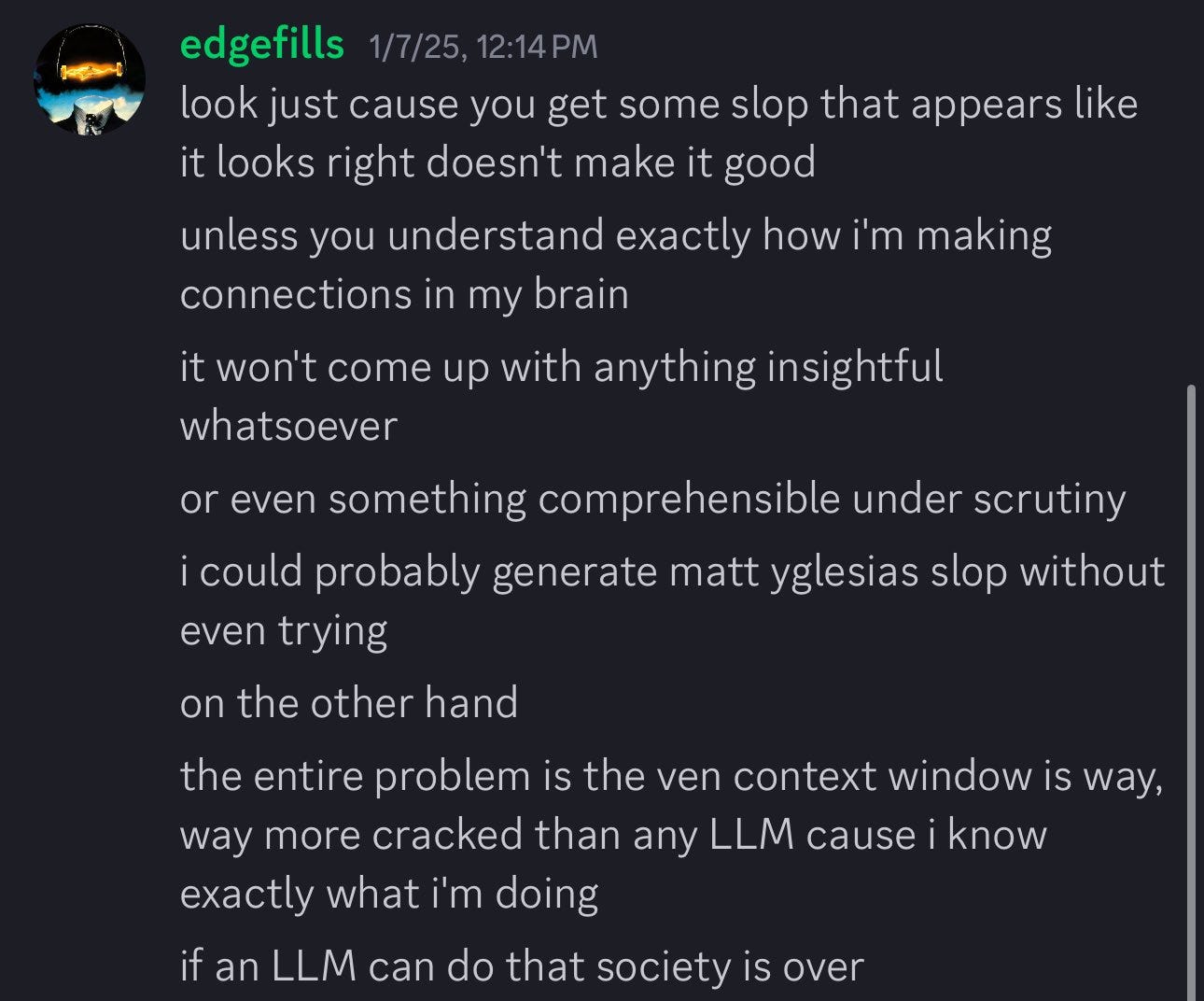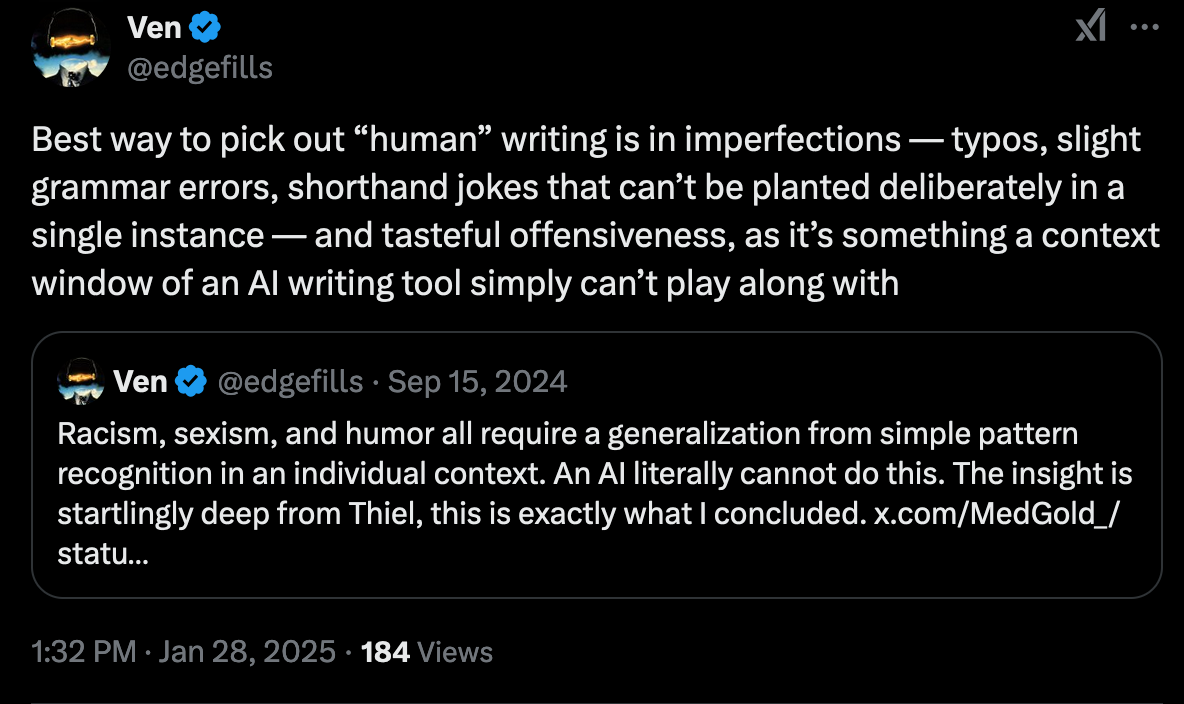All These Things That I Have Longed
Bid and Tonic 7
Something I find myself repeating often nowadays is that I’ve never seen markets move like this before. Part of this is obviously due to the accessibility of markets post-Robinhood, but an even greater part is that nobody seems to know anything anymore, and prices reflect this rather than information asymmetry being actionable edge. Does anyone remember how PNUT was a “2 billion dollar” phenomenon, or did that already get memoryholed? (yes, yes, market cap isn’t reflective of liquidity, but this is besides the point.)
I like to joke that my job is “full time blogger” and “full time X scroller”, but frequently I have been finding myself in the eye of a hurricane that has yet to be formed due to this habit, to the point where I think there’s barely anything else to public markets nowadays.
The way it works goes something like this. There is an algorithm that ebbs and flows around the American workday that controls what everyone who logs on to some form of media or another will see within 4 hours to 6 days. Depending on the form of media, the frequency with which you see things will imply different things about the signal and actionability of what is being pushed. How well you have curated your mediums of choice alters how you take advantage of it — if you understand X very well, you have a head start on doing things, while if you understand how things break containment into regular news, you have a far greater ability to sit on your hands and operate on a “nothing ever happens” wavelength, as so frequently happens. As Deepseek so beautifully put it, the velocity of the flow is dependent on the collective inability of society to stop checking their phones.
Funny thing about Deepseek — why the fuck did this thing cause a crash? Enter the latest eye of the hurricane, where I truly got the test case as to whether it is in fact “over”. A pair of posts says everything:
The basic process of discretionary trading amounts to formalizing your intuition, looking for confirming signals in some manner, and acting accordingly. It’s not hard to see why the influencer/KOL meta took off so much in markets — overwhelmingly, people want to be told what to do, as evidenced by the fact that this blog was born out of the fact that people kept asking me what to buy and sell, I’d repeat my thoughts endlessly, and then nobody would read what I had to write anyway. I’ve long been fine with this — frankly, I think it is literally impossible for anyone else to keep track of everything I write across mediums, and I do it for myself at the end of the day, because when people do start to pay attention — if what I’m rambling about makes sense — then I definitely need to take notice of it asap.
The reason why I virtually never buy puts or trade with leverage is because it’s far easier to flatten and wait and see what happens rather than time the crash. In a sense, what I’m seeing here is exhilarating — the news itself doesn’t move markets, but the collective biological mechanism synthesizing it through the Twitterverse does. This is, in effect, the literal core principle of Postmodern Markets as I finalized in September:
Liquidity: the friction between theory and reality
Liquidity theory: An ought becomes an is when there is a sufficient amount of speculation as to whether an outcome is or ought to happen.
“Does a tree that falls in the middle of an empty forest make a sound? Yes, precisely when enough people say they heard it.”
The other effect this has on me is outright terrifying, in that this obviously is coming to an end. Two things happened Monday — everyone I know that doesn’t watch markets asked me whether it was time to buy NVDA, and everyone I consider high signal was conveying a serious sense of existential dread in our conversations. I get an extremely uncomfortable feeling that a bunch of the financial research world is doing what I do, but badly — they simply don’t have the tools or the expertise to keep up with this objectively insane way of processing markets.
It simply shouldn’t work like this. The job of everyone in finance is to dampen everyone’s desire to trade frenetically, not publish “analyst notes” on something they have no fucking clue about, because NOBODY has a clue where this thing goes. All of society is levered to the tits on this low delta call option dependent on whether we can just blast compute to reach the Helios ending of Deus Ex
I have said this frequently, but this is, quite simply put, the most crowded trade ever. There’s no way out but long, an even more collective entrapment than “the dollar must continue to exist.” It’s why the dip must get bought, and we will feel collectively terrible doing it again, and again, and again.
In effect, this allows me to outline p(doom) for myself, even though I don’t believe there is any way to actually price this. (One could consider the tails of p(doom) to be the Skynet ending vs the nuclear war ending, but this is largely a waste of time and brainpower to discuss.) As soon as I stop having an information processing edge to trade on, and an AI can replicate what I do, it’s actually over. I came up with this when I tried to create a VenGPT a while back on my own writing, and realized it was failing miserably:
The paranoia comes not from the fear that my style of writing is replicable — in fact, I think I have probably the most AI-resistant manner of writing possible, in terms of what it can and can’t say (wrt political correctness), how I make connections, and the fact that self-referential looping completely bricks the text-generative capacity — but that a vast majority of writing is replicable and that is what is increasingly being sent around nowadays.
I can glean what is being autogenerated vs refined and read between the lines, but can people who don’t schizophrenically read and write all day long do the same? At what point does the AI narrative become the dominant one and reinforce what it has been overfit to convey rather than the collective masses crowding one way or another?
This comic is ancient, but truer than ever before, and it’s happing faster and faster. The death of human speculative edge doesn’t come because computers run faster, quant higher, and that crowds inevitably kowtow to large numbers, but in the fact that at some point, we might just choose that being told what to think is much easier. I used to think that a fully passive market implied zero price discovery, but the implication that we are lacking pricing curiosity is a far scarier concept.














